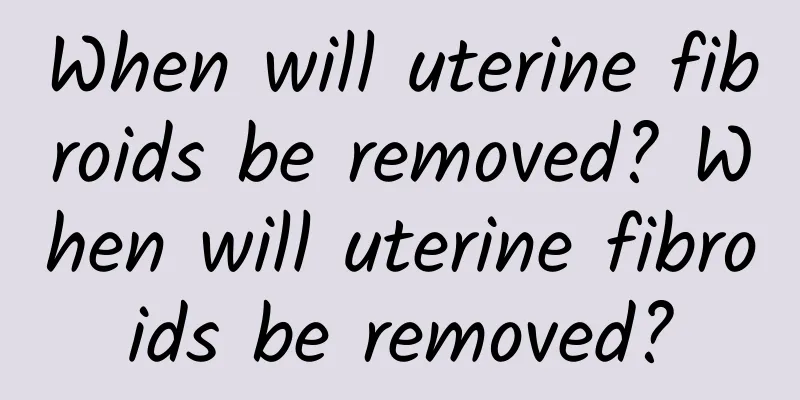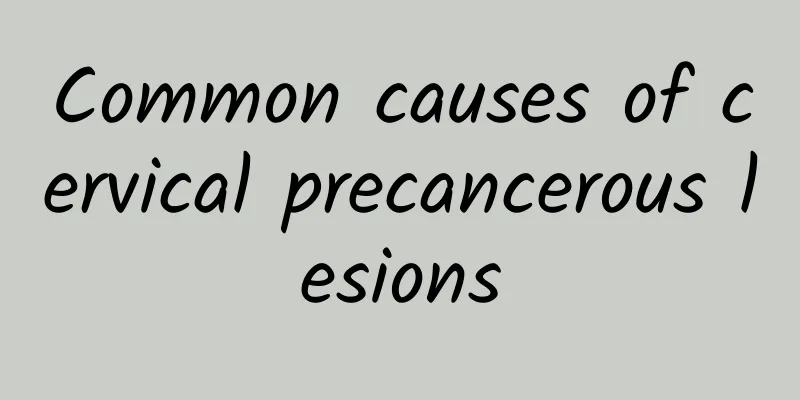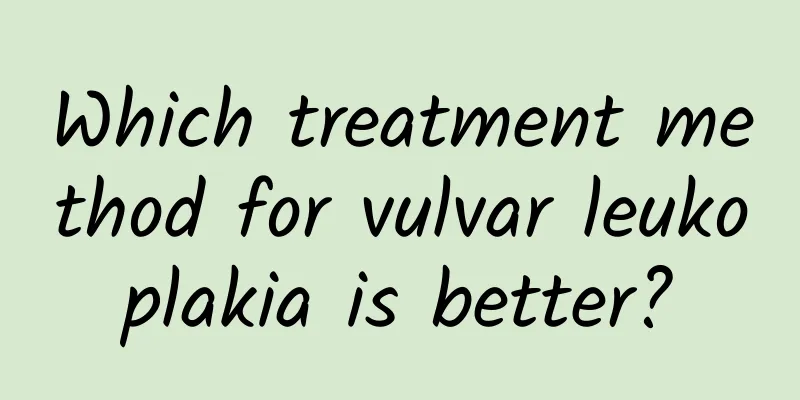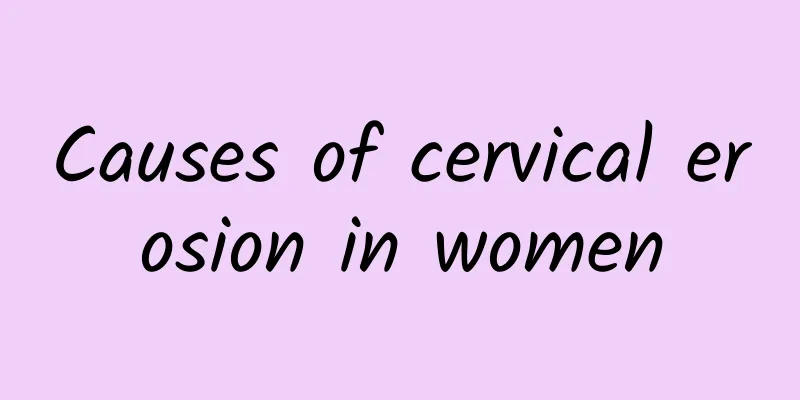When will uterine fibroids be removed? When will uterine fibroids be removed?

|
Under what circumstances will uterine fibroids be removed? Uterine fibroids are one of the most common tumors in the female reproductive organs. They are usually benign, but in some cases they may cause some discomfort and complications. So, when would you consider removing uterine fibroids? 1. Heavy bleeding Uterine fibroids may cause menorrhagia or abnormal menstrual cycles, resulting in heavy bleeding. In this case, if drug treatment is ineffective or the side effects of the drugs are large, the doctor may recommend removal of the uterine fibroids. Heavy bleeding not only causes anemia, but also has adverse effects on women's health and quality of life. 2. Infertility or recurrent miscarriage Uterine fibroids can cause infertility or recurrent miscarriage, especially if they are located in the uterine cavity or put pressure on the endometrium. If the fibroids affect the shape of the uterus or prevent the fertilized egg from implanting, doctors may consider removing the fibroids to improve pregnancy rates. 3. Compression of surrounding organs Uterine fibroids may compress surrounding organs as they grow. Especially when the fibroids grow to a certain size, they may compress the bladder, causing frequent urination, urgency, or difficulty urinating; they may also compress the rectum, causing difficulty defecation or constipation. In this case, the doctor may decide to remove the uterine fibroids to relieve symptoms and improve the patient's quality of life. 4. Rapid enlargement or suspected malignant transformation Most uterine fibroids grow slowly, but in some cases they may grow rapidly. If a uterine fibroid grows rapidly in a short period of time, or there is a possibility that the fibroid will become malignant, the doctor will recommend removing the uterine fibroid to rule out the possibility of malignancy. 5. Long-term pain or compression symptoms When uterine fibroids cause long-term abdominal pain or pressure in the lower abdomen, your doctor may consider removing the fibroids. The pain may interfere with your daily life and work, and severe pressure symptoms may affect your quality of life. Removing the fibroids can relieve symptoms and improve your quality of life. Uterine fibroids are common tumors in women, most of which are benign. However, in some cases, such as heavy bleeding, infertility or recurrent miscarriages, compression of surrounding organs, rapid enlargement or suspected malignant transformation, and long-term pain or compression symptoms, doctors may recommend removal of uterine fibroids. Each patient's situation is different, so when facing the decision of surgery, a comprehensive assessment of the individual's condition should be conducted and the decision should be made based on the doctor's advice. |
>>: What is the difference between uterine cyst and fibroids? Which one is more serious?
Recommend
How to treat candidal vaginitis
I believe that friends who suffer from candidal v...
What is the cause of uterine cold dysmenorrhea
Dysmenorrhea due to uterine cold may be caused by...
Symptoms of dysmenorrhea that women should pay attention to
In real life, dysmenorrhea is a very common gynec...
Causes of uterine fibroids
Among gynecological diseases, uterine fibroids ar...
Walking is more effective than running in preventing dementia and reducing the three highs
There is a running craze sweeping Taiwan. However...
Women with menstrual pain should drink hot drinks and eat chocolate in moderation
Some women roll on the ground due to the pain dur...
It is important to explain women's daily care
In our lives, most women will experience dysmenor...
What are the symptoms of uterine fibroids?
Uterine fibroids are a common benign tumor, and t...
What is the cure rate of habitual abortion in traditional Chinese medicine?
Traditional Chinese medicine is a traditional tre...
Experts tell you about the different classifications and stages of vulvar leukoplakia!
Patients with hyperplastic and atrophic vulvar le...
Eat barbecue without getting fat, 4 tips for stewing and grilling
Modern people are under great pressure at work, a...
What are the causes of cervical warts?
What are the causes of cervical warts? Due to peo...
Is uterine cyst serious? What are the dangers? Uterine fibroids
Uterine cysts are usually not serious diseases, b...
What are the specific manifestations of the dangers of hyperprolactinemia?
Hyperprolactinemia refers to a syndrome caused by...
Will eating white rice make you fat? Misunderstood! Not the root cause of obesity
(Text by Professor Wu Jiacheng of Chemistry) In t...









